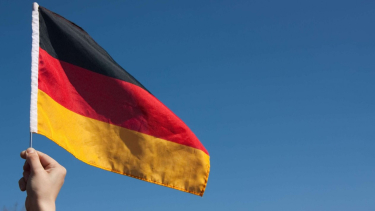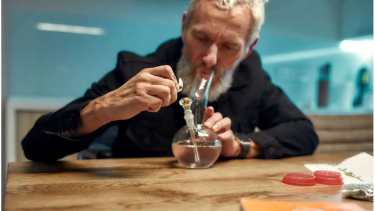Germany Legalises Cannabis for Personal Use
- New York Post
Jakarta – Germany’s parliament has passed a law allowing individuals and voluntary associations to grow and hold limited quantities of cannabis, making it the latest in a small group of countries and jurisdictions to legalise the drug, at least in part.
The law passed by the chancellor, Olaf Scholz’s ruling three-party coalition, legalises cultivating up to three plants for private consumption, the possession of 50g of cannabis at one time at home, and 25g in public.
It follows a heated debate about the pros and cons of allowing easier access to the drug.
“We have two goals: to crack down on the black market and improved protection of children and young people,” the health minister, Karl Lauterbach, said at the start of a rowdy debate where the opposition accused him of promoting drug use.
"You are asserting in all seriousness that by legalising more drugs we will contain drug use among young people. That is the most stupid thing I’ve ever heard," said The Christian Democrat politician Tino Sorge.
Tanaman ganja.
- DW
But Lauterbach said that this amounted to “sticking our heads in the sand”. Not only had cannabis use soared among young people, whose developing brains were particularly endangered, but drugs on the streets were both stronger and more impure nowadays, greatly increasing their harm.
About 7 million Germans are estimated to regularly use cannabis. The government has said previously that many users rely on the drug for medicinal reasons and that the new law will also improve the quality of cannabis consumed by growing numbers of young people.
Doctors against the law change have warned that it will endanger the health of young people by making the drug more accessible and thus increasing the risk of addiction.
The coalition of the Social Democrats, Greens and the pro-business FDP agreed in November to push on with the change, having included it in their coalition agreement on sharing power.
Adults will be permitted to grow up to three plants and possess small amounts of cannabis from April 1, and three months later it will also be available in licensed not-for-profit clubs established to grow and distribute the cannabis plant.
Cannabis consumption for the under-18s will continue to be forbidden, as reported from the Guardian site.
Opposition has come from some of Germany’s 16 states, which will have responsibility for policing the law, including the southern state of Bavaria, ruled by the conservative Christian Social Union, which has urged the government to think again.
Some of Lauterbach’s fellow Social Democrats have also issued warnings, in particular about the use of cannabis around schools and kindergartens.
The minister, in turn, has said legislation will prohibit the smoking of cannabis within 100 metres of educational establishments.
Police authorities have said that they will have difficulty imposing the rules. But Lauterbach responded by saying the policing of the hidden market had also been difficult.
The law change makes Germany the third European Union member state to legalise cannabis for personal use, after Malta and Luxembourg.
Advocates for the drug’s use for medicinal purposes said they were hoping for a positive influence from the decision by Europe’s largest economy that might pave the way for other countries to follow suit.
Observers from around the world will be closely watching how the law works in practice in Germany.



































